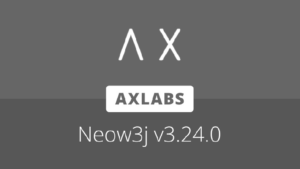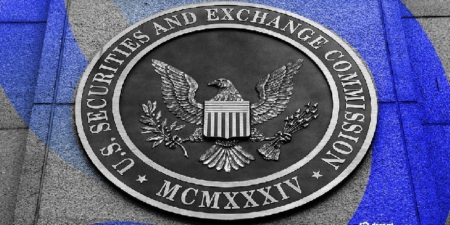Securities and Exchange Commission Chair Gary Gensler is holding the line that he doesn’t need legislation to police crypto, even as the White House and others say they’re ready to hash out regulatory policies.
A presidential policy statement on Wednesday said the White House is eager to establish a “comprehensive and balanced regulatory framework.”
The White House is “eager” to work on a crypto bill. That was the sentiment of its latest statement on Wednesday, putting the administration on-the-record again about wanting new digital assets policies to protect investors.
But U.S. Securities and Exchange Commission (SEC) Chair Gary Gensler – the securities watchdog President Joe Biden hired as a member of his transition team and a key regulator – says don’t bother. Gensler’s strong view that existing laws give his agency plenty of authority seems to go against other U.S. regulatory agencies, the White House and its Treasury Department.
Gensler, in a statement he issued against the Financial Innovation and Technology for the 21st Century Act (FIT21) on Wednesday – as the bill heads toward a vote that’s expected to count a significant number of Democratic supporters – accused crypto firms again of showing “their unwillingness to comply with applicable laws and regulations for more than a decade, variously arguing that the laws do not apply to them or that a new set of rules should be created and retroactively applied to them to excuse their past conduct.”
“The crypto industry’s record of failures, frauds, and bankruptcies is not because we don’t have rules or because the rules are unclear,” Gensler argued. “It’s because many players in the crypto industry don’t play by the rules.”
Biden’s White House may not like FIT21 either, but a policy statement the same morning said the administration is “eager to work with Congress to ensure a comprehensive and balanced regulatory framework for digital assets, building on existing authorities.”
Rep. French Hill (R-Ark.) said in a CoinDesk TV interview on Wednesday that many House Democrats “recognize that the existing Securities and Exchange Commission rules are inadequate.” Hill added that FIT21 is trying to give Gensler’s agency a roadmap for handling this sector.
“I cannot explain why he’s taken the position that he had,” Hill said. “I think he’s isolated from other regulatory leaders.”
The SEC didn’t immediately respond to a request Wednesday to comment on whether Gensler sees himself at odds with fellow government officials.
The SEC’s sister agency in policing the U.S. markets, the Commodity Futures and Trading Commission (CFTC), has taken a strong pro-legislation position, arguing that existing law leaves a hole in oversight of the crypto spot markets for non-securities, such as bitcoin (BTC). CFTC Chairman Rostin Behnam has told lawmakers that “Congress needs to act” on crypto legislation, and he’s said that if FIT21 passes, his agency can build a regulatory framework within 12 months. A CFTC spokesperson told CoinDesk on Tuesday that the agency would not comment on the bill.
Consumer-protection groups seem to be in Gensler’s corner on this, and Mark Hays, a senior policy analyst for Americans for Financial Reform and Demand Progress, dismissed the apparent contrasts among different corners of the federal government.
“It reflects slightly different takes on what’s important and the ‘art’ of what’s possible in politics,” he told CoinDesk in an email. The regulators “all have different tools to address crypto regulation matters. Some of them have exercised that role effectively; others could do more.”
The spot-markets gap could be filled by separate legislation naming the SEC its regulator, said Hays, who argued that in matters of investor protection the SEC’s view should get some deference, despite the CFTC “playing the spoiler.” His groups are among dozens of organizations opposing FIT21 on consumer-protection grounds.
The federal courts – despite Gensler’s contention that judges have agreed with his agency “time and again” on crypto matters – haven’t yet provided consistent answers on whether tokens should be treated as securities, and the final say may still need to come from the U.S. Supreme Court. So, it’s a race between Congress and the courts on who will define how tokens such as bitcoin, Ethereum’s ether (ETH), tether (USDT) and solana (SOL) should be handled in the U.S.
Among other government voices clamoring for crypto legislation, Treasury Secretary Janet Yellen said earlier this year that “Congress should pass legislation to provide for the regulation of stablecoins and of the spot market for crypto-assets that are not securities.” The Treasury interest in the spot markets and illicit finance doesn’t leave a clear picture yet on exactly what the administration’s financial arm would be interested in for crypto oversight, though the White House has certainly indicated that FIT21 isn’t it.
But whether the government likes it or not, that’s the first crypto bill that will receive a vote in one of the chambers of Congress, leaving it as the most prominent piece of digital assets legislation in the conversation.
“We’re disappointed that Chairman Gensler doesn’t see that this is better than current law and gives him the tools, ability, and a process that can allow him to be a better regulator and a better supervisor in this space,” Hill said.
Read More: SEC’s Gensler Says House Bill Would ‘Undermine’ Regulator’s Crypto, Capital Markets Oversight
Read the full article here









